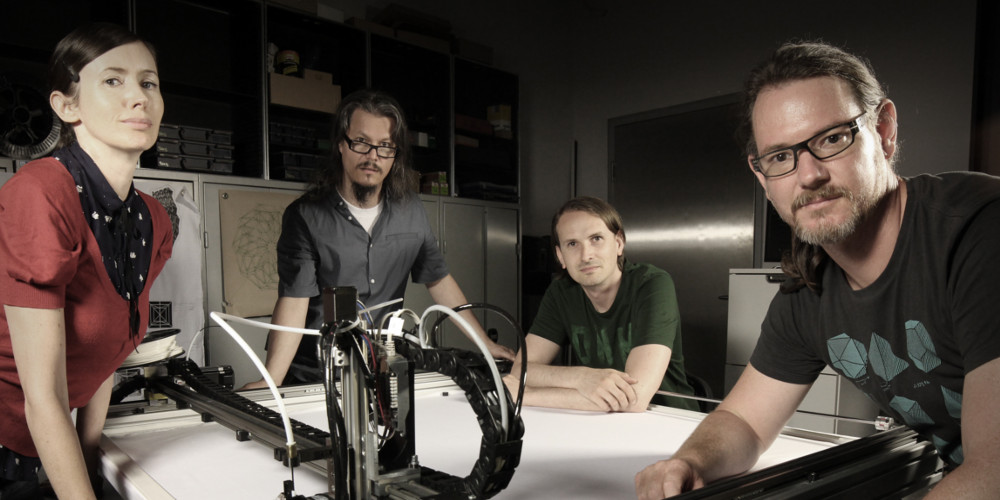
Matthew Gardiner
Matthew Gardiner is an expert in the field of Oribotics, having coined the field, and pioneered the fusion of origami, folding and robotics with his generations of Oribotic artworks. Gardiner’s artistic contexts include team-based research, and individual artworks with experience extending across aesthetic and experience design, digital manufacturing, expert-level origami and writing code. Gardiner is project lead for ORI.
ORI*
Folding matter by code
Our research begins with the premise: folding is coding for matter, an idea emerging from computer and molecular science, pointing to the idea that materials perform computation and ORI*, is a functional aesthetic way to sense, program and transform the code of matter.
For the Ars Electronica 2016, we present our vision for ORI*:
Niwashi—our interactive fabrication system: 3D scanned forms are algorithmically folded, then 3D printed with foldable material composites. Niwashi means “landscaper,” a role held by an accomplished master of nature and art. Combined with elastomers, these ready-foldable objects express high degrees of programmability and transformability.
ORI*BIT—our for the minimum building-block module for ORI* Systems: conceived as a foldable actuator and haptic sensor combined. Conceptually, an ORI*BIT, could be used to make an ORI*BOT, a more complex folded organism. ORI* includes the asterisk to express multiple domains of application, medium and scale; ORI* explores folding as a language to combine functional and aesthetic design for daily life.
Credits: Matthew Gardiner, Hideaki Ogawa, Roland Aigner, Rachel Hanlon, Erwin Reitböck and Ray Gardiner. Special thanks to Christopher Lindinger, Horst Hörtner and Benjamin Krux at Reprap Austria
This project is funded through the FWF PEEK Program and a research project of the Ars Electronica Futurelab.

